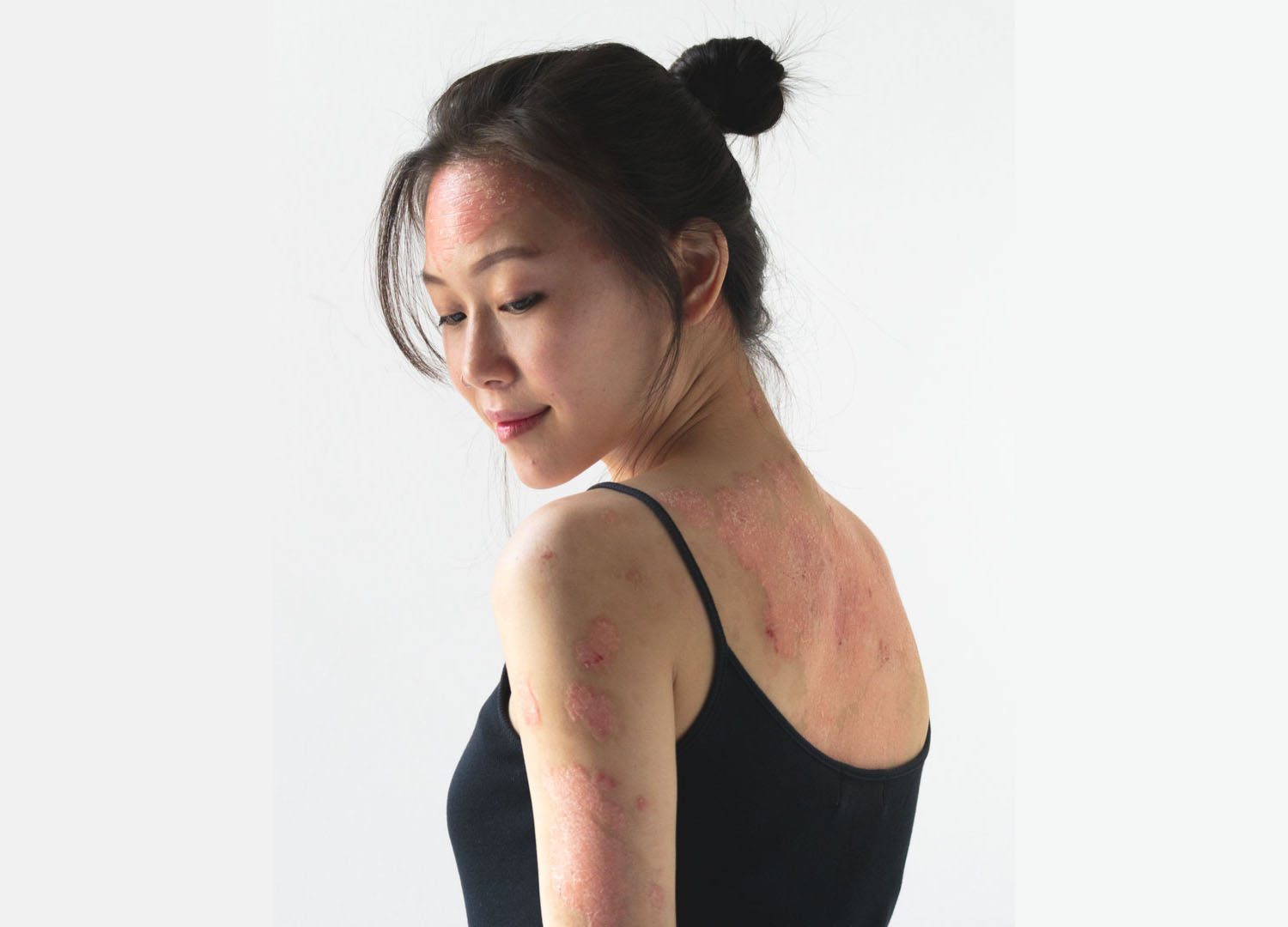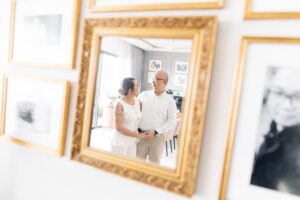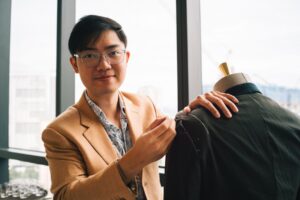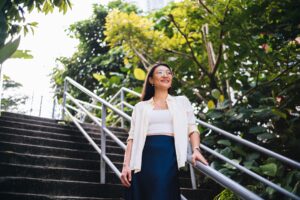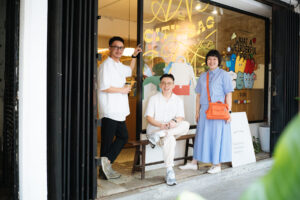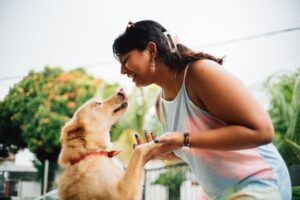Strength and beauty have many facets – it is as diverse as the people who deem them in their eyes. This International Women’s Day, we speak to three women breaking the mould of close-minded femininity and learn what beauty, empowerment and self-love means to them.
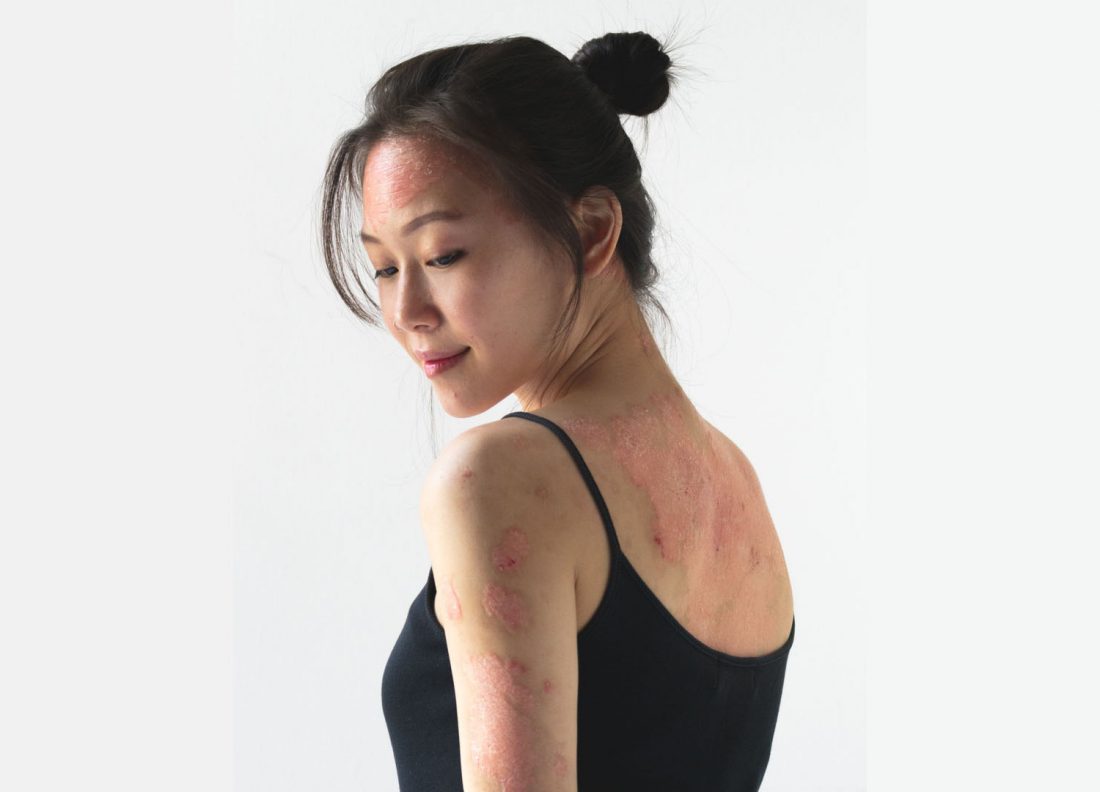
It started with an itch when she was nine years old. Rocyie Wong had no idea that her itchy scalp and what she thought was a mild dandruff problem would become chronic psoriasis that would consume her life.
“The process of worsening was so gradual that I didn’t know there was something wrong,” she recalls. “It’s also the lack of awareness and education back then. We didn’t even know it was a skin condition.”
Showers soon became a painful affair as the itch on her scalp worsened and by the time she was fourteen, she was waking up with blood on her pillow.
“It wasn’t until someone came over to my place to try some products on me and saw just how bad it was,” she regales. “They looked at my scalp and it was like an open wound. That’s when I decided to get professional advice and was diagnosed with chronic psoriasis at 14.”
Psoriasis is a chronic skin condition that currently has no cure, identified by itching, flaking and lesions on the skin. Depending on the severity, it can also affect the nails, leaving them deformed, tender and painful. More severe cases include psoriatic arthritis, which brings about aches in the joints and, without proper and immediate treatment, will cause deformation of bones that is irreversible.
Rocyie suffers lesions on her body, limbs and forehead including her nails, putting her on the severe end of the condition.
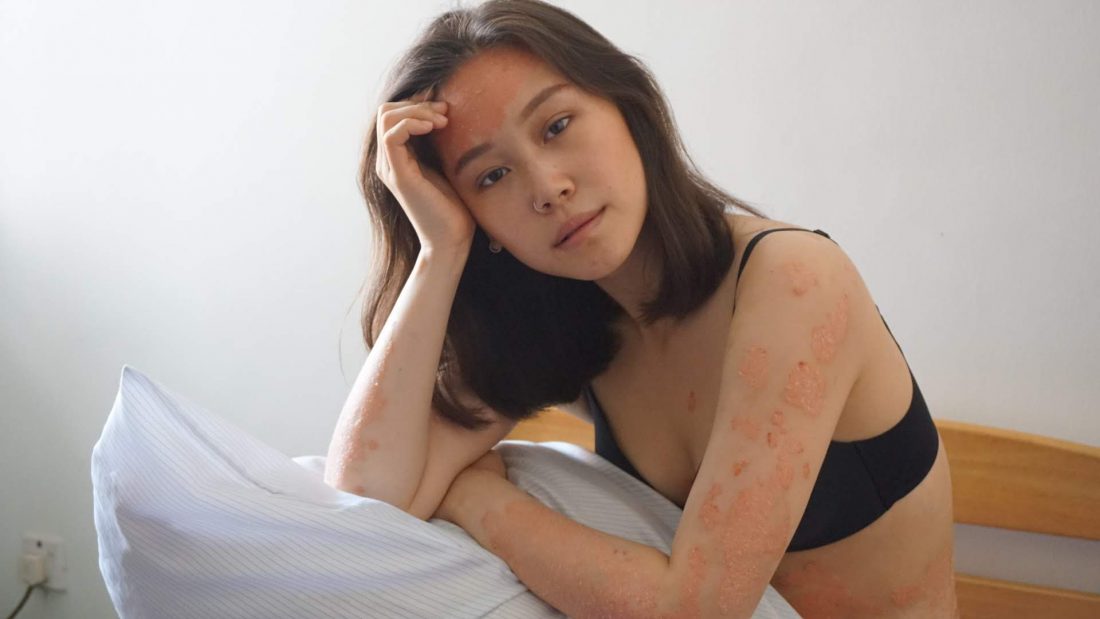
“I think my lifestyle and my diet have helped a lot to slow down the progress,” she shares.
“One of the main things that people with skin condition must be most aware is their lifestyle. It’s the food.”
In her pursuit of helping others like her find the help and support she didn’t have when she was younger, she founded Safe Space, a mental health support group for psoriasis patients that has evolved into a physical and online avenue focusing on individual’s emotional healing and personal development as well as PsoGood, a platform that teaches and guides followers to better and healthier eating to better manage their respective skin conditions.
“I’ve had 14 years of experience with seeing doctors and nutritionists to handle my condition, so I’m putting together a guidance for people who want to eat healthier, from how to include more fruits and vegetables in our diet, how do we stop using chemical and flavouring in food to how to choose good cooking oil,” she elaborates. “They need to understand how to take care of themselves – that’s why I’m working on these projects to educate the masses and help those who are suffering from it but don’t know how to deal.”
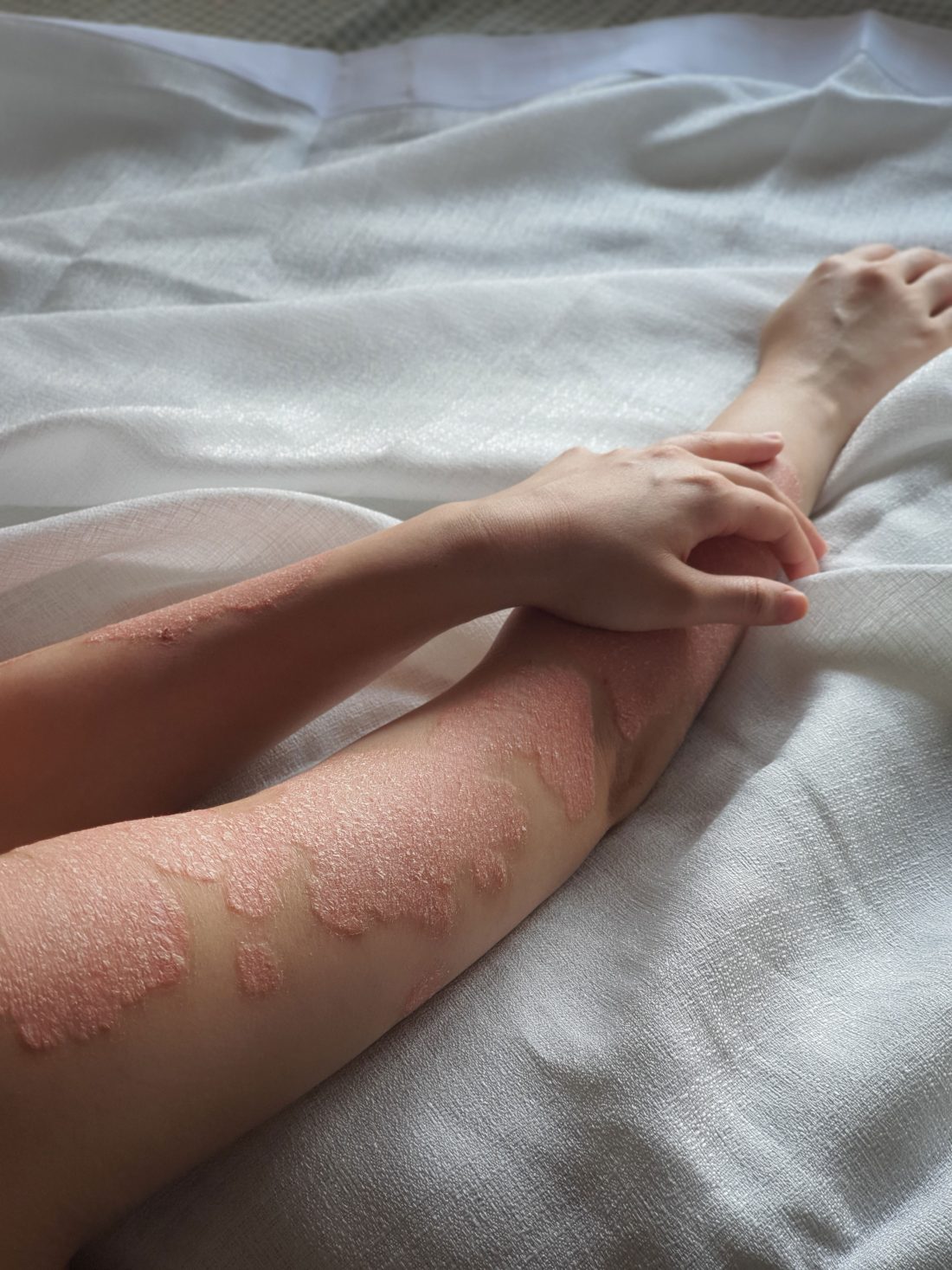
Journey to acceptance
Growing up, Rocyie describes herself as an extroverted girl, who was outspoken and outgoing.
“Secretly I was very ashamed of this condition,” she admits. “I would pretend everything was alright at school. I would be my happy bubbly self but when I came home, the moment I see all the medication and creams, I’ll realise that I have this condition and feel down.”
“Each time I take off my clothes in front of the mirror and see the patches of psoriasis on my skin, that’s when it hits me the worst. A very large part of my teenagehood feels like I’m living a double life,” she opens up.
“In front of my friends and peers, I would always appear confident. What they don’t know is that when I come home, I’ll cry. I cried a lot during my younger days. I spent a lot of my time going through treatments, driving all over the country and travelling overseas to seek treatment. At the same time, I had to deal with the side effects of the medications.”
She names her parents as her biggest support system through it all. They never gave up the hope that there’ll be a cure and went way out of their ways to try everything for her. She has tried modern to traditional medicine, natural to unconventional remedies. “I’ve even had monitor lizard soup; I don’t know where my mother found a contact for it and made soup for me.”
In all their good intentions, she also felt like the stress and support came from the same source. “There was a lot of panic response,” she explains. “Whatever people said, they were believing it. For me, it was a lot to deal with; I felt like a lab rat for a huge part of my life. I felt like there was no break.”
She finally arrived at a place of acceptance when she turned 23, a whole nine years later.
“It took a long time,” she admits. “The doctor said it’ll be around forever, but it’s possible to remove the lesions on the skin. That was when I changed my lifestyle because this condition is permanent. My wellness plans had to hence be long-term and sustainable. It has to become part of my life.”
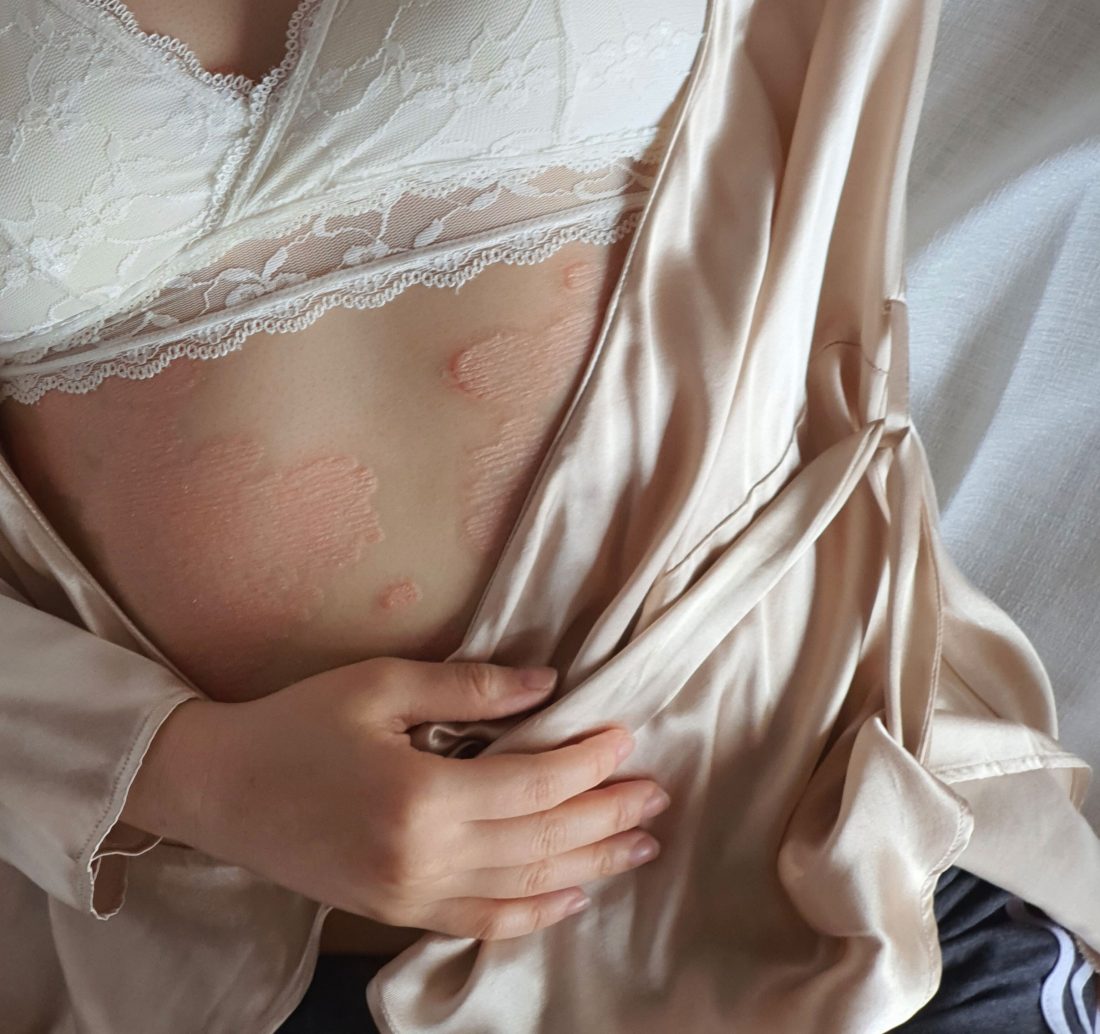
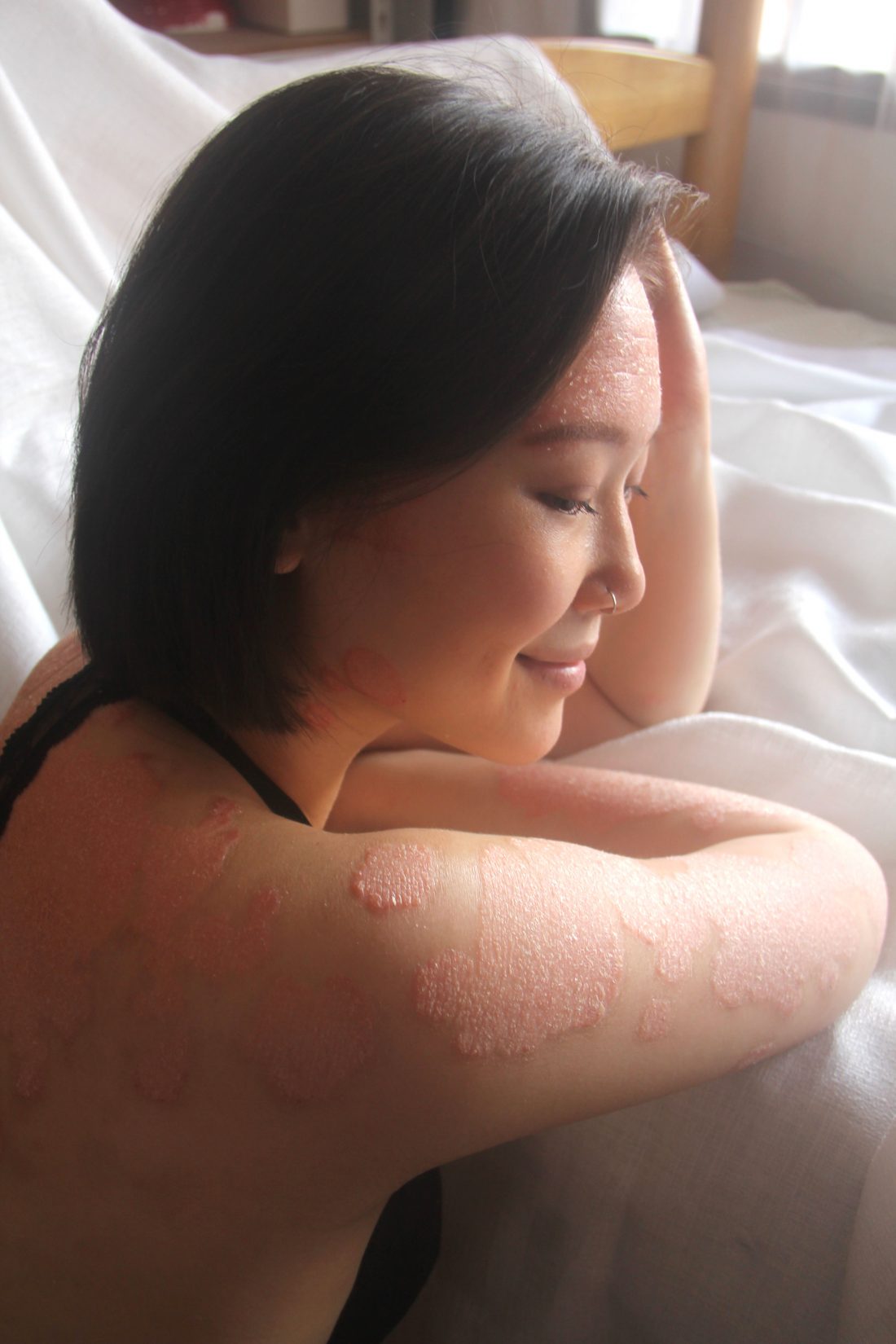
Ninety-five percent of Rocyie’s diet is plant-based today. Animal proteins – especially red meat and animal fats – will trigger long term chronic low-grade inflammation in as little as two weeks, as will sugary, processed and junk food.
“I don’t have a full-time job, my full-time job is my health,” shares the part-time dance instructor and freelance social media manager. “I need to make sure I drink a lot of water, sleep early and not stress. Stress causes inflammation. It’s a lifestyle that’s hard to maintain when you’re working. Sometimes even I find it hard despite not having a full-time job because there are so many temptations.”
Psoriasis hadn’t only robbed her of a normal childhood, it has also taken from her more than some dreams. “I did have dreams of climbing the corporate leader, becoming CEO, but I can’t hold a job now because of my condition,” she tells. “But I’ve found other callings. I am a person who’s very achievement driven. Eventually because I don’t have a choice, I’ve had to shift my perspective.”
“What gave me a lot of strength was stepping into my own truth”
In starting her two initiatives, Safe Space and PsoGood, Rocyie has had her world widened to see that there is more – a lot more – than what shows on the surface.
“It’s humbled me,” she says of her journey. “I’ve been exposed to a different world – a world of real problems that affects health mental and physical. It made me realise that the world we live in right now has a lot of things that we have to change, including the medical industry and our food systems.”
“More importantly, it’s made me recognise my role in this change,” she adds.
Before starting on her endeavours, she was concerned with not being known as “pretty” anymore once she shows the world the real her, lesions, redness, flaky skin and all.
“I used to take a lot of pride in how I look. My ego was attached to my physical appearance. I loved to be told I’m pretty. But so what? It’s not everything, “ she tells. “At the very juncture of starting my, project, I was still unsure if I was strong enough to share this vulnerability. I was afraid people won’t think I’m pretty anymore after seeing how real my psoriasis is. It’s a huge part of me.”
She reminded herself how lonely she felt in her own journey and decided to be the voice for others who needed her strength. “Once the project launched, so many people came and thanked me for sharing my journey because it made them feel seen,” she shares. “I posted a picture of my legs and they said it made them cry. There was no social media representation for our kind of appearance.”
Even her closest friends were surprised as they didn’t realise how severe her condition was and how much she was dealing with on a day to day basis.
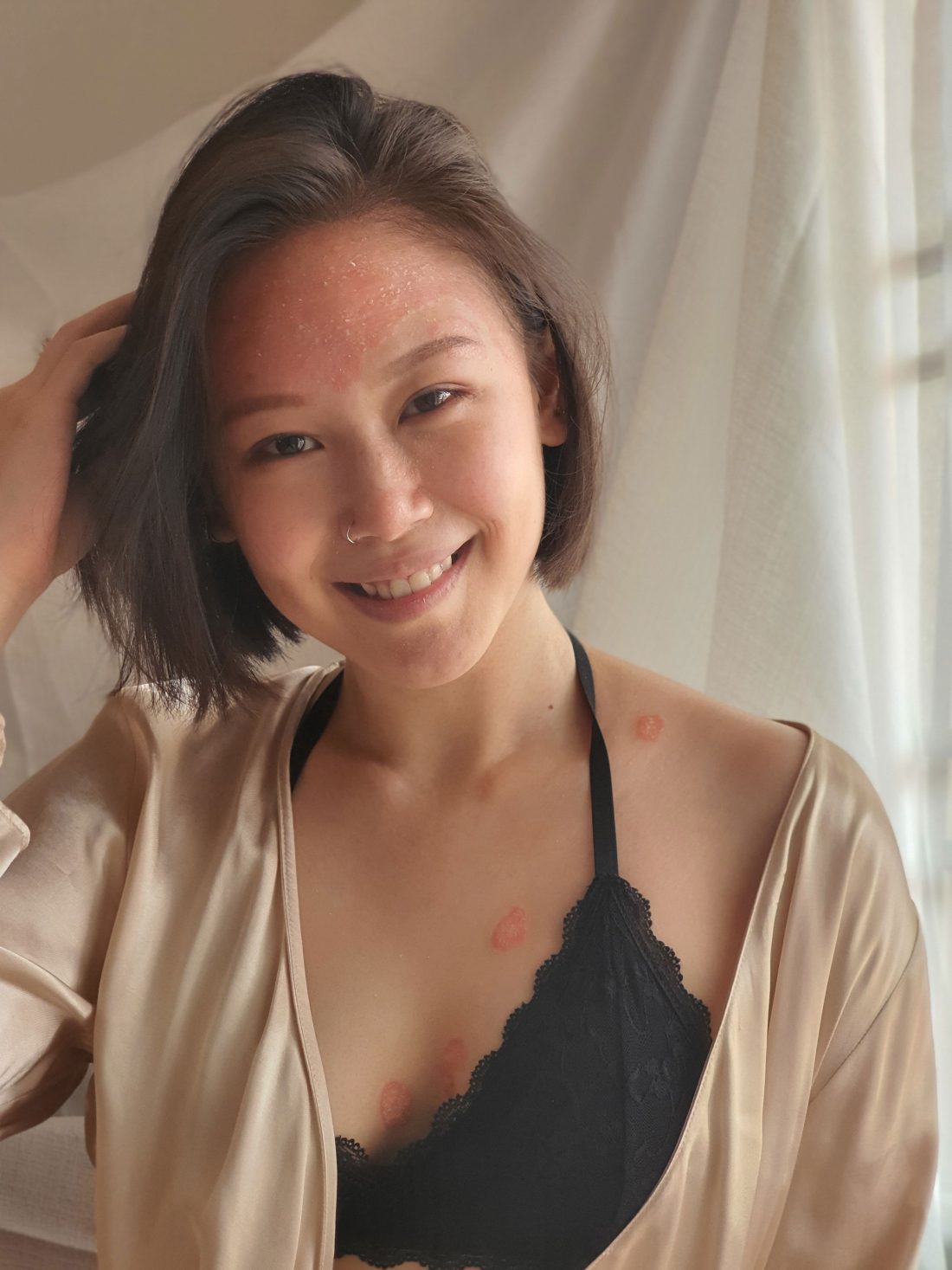
Speaking out has liberated her and given her a sense of control over her circumstance. “Right now, I’m learning to be truthful to myself about what I want to create. People talk about living one’s life purpose. I like to think I really am now.”
However, she is fast to recognize that it’s not an easy journey and she still has a battle ahead of her. “What people don’t realise is that when you realise your life purpose early, it doesn’t mean that it’s easy. It’s equally as challenging. I’m living my life purpose but I’m also struggling.”
But she’s going to continue fighting on strong, if not for herself, then for others like her, because she knows how cruel and tough the journey can be especially in the areas of discrimination and judgements.
“What gave me a lot of strength was stepping into my own truth,” she says. “A lot of people are afraid of being themselves. I was so afraid of being myself for so long, it took me so many years to admit I have this condition. Embracing it has finally freed me and made me feel more beautiful.”
She likens self-acceptance and one’s idea of beauty as a library. “Sometimes we find it hard to love ourselves because we don’t like what we have in our library. What we don’t realise is that we can always remove what we don’t like and put in what we like. It’s okay if we find things that we don’t like about ourself.. With that awareness, slowly take steps to change it. That’s how we can feel wholesome about ourselves.”
“Feeling beautiful is more a journey, it’s what you feel inside.”
(Photos: Rocyie Wong)




